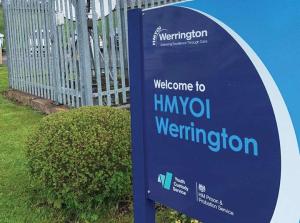The Children’s Commissioner recently visited Australia to meet international colleagues working to protect children worldwide. Children are passionate about global and intergenerational issues, such as climate change, inequality and information sharing through social media and the internet. The visit was part of the office’s commitment in this year’s business plan to exploring what we can learn from the best international practice, what being a global citizen means to children and how they can be part of positive change.
Dame Rachel met teams at The Children’s Hospital at Westmead, part of Sydney Children’s Hospital Network, where they discussed the unique challenges facing the families in their care, particularly through early identification of healthcare needs among the region’s priority populations. Their leadership and cooperative working across all the agencies involved in child protection was striking – born out by the positive feedback and results they’ve seen. In this guest blog, the Sydney Children’s Hospital Network outlines some of the unique challenges they face in providing services and the programs they deliver.
As the largest paediatric health care service in Australia, the Sydney Children’s Hospitals Network (SCHN) cares for up to 170,000 children every year across our hospitals Sydney Children’s Hospital, Randwick and The Children’s Hospital at Westmead.
Our team of over 8,000 commits to providing world-class paediatric health care in a family-focused, healing environment, transforming the health and wellbeing of children and young people now and into the future. We strive to be innovative leaders in holistic health care, focused on not only the physical, but on social, emotional, cultural and spiritual wellbeing. We listen to our patients and their families and provide a respectful environment.
SCHN is committed to keeping children and young people healthy, including health promotion and equity of access. We know a child’s early years are the foundation for future health, development and wellbeing. We endeavour to continue in building on successful programs like Kids Early Years (KEYS) – partnering with other organisations to help disadvantaged families access services. This includes improving service equity for children and young people from priority populations through early identification and supported care pathways.
Kids Early Years Network (KEYS)
There is compelling global evidence that community-based system integration is urgently needed to improve equity of service access and address the social determinants of health for children and their families. The nature and impact of strengths and adversity in childhood is multifaceted and there are multiple trajectories over time from early adversity to children’s developmental outcomes. By the time children begin school in Australia, clear inequities in health and developmental outcomes are already evident, driven by the circumstances they live in and the failure of health, welfare, and educational systems to work together to ameliorate these impacts.
In 2018, 15.4% of children living in the poorest areas of Australia were developmentally vulnerable on two or more domains of the Australian Early Development Census compared to the national average of 11.0%. Research studies have suggested that a child’s development is impacted by multiple levels of the child’s environment, and the impact over the life course. To be effective, responses to child inequities must be similarly complex, engaging diverse organisations, community supports, child welfare services and others to meet the complex needs of children and families.
KEYS is a collaboration between the Western Sydney Primary Health Network, NSW Department of Communities and Justice, SCHN, Western Sydney Local Health District, and the Department of Education. KEYS aims to promote partnership between services and share information respectfully and securely between providers, so that ‘no family gets left behind’.
KEYS works to navigate the complex governmental system for priority population families using KEYS navigators embedded in all the partner organisations who work together, and in addition there are specific navigators for disability, housing, and Aboriginal care. It is a different way of working across agencies and has involved realignment of staff, centred on the family, with systems and resources supporting family-centred plans, aiming to provide effective consumer-led and person-centred integrated care, particularly to meet the needs of children and families. KEYS commenced engaging families in May 2021, and already has had 810 families referred, with 577 of these families having now successfully exited the program.
What the families have said about KEYS:
“[KEYS] has changed my life. My son has improved so much, they helped us with childcare, I felt less stressed…Before KEYS I didn’t think I was getting anywhere, I felt helpless.”
“Honestly there have been so many opportunities for me and I now know where to find help in my community…”
Our success so far:
- 90.5% said KEYS helped navigate the system
- 85.8% said KEYS navigators reduced their level of frustration in accessing services for their clients
- 88.1% said they obtained an increased knowledge of the service system





